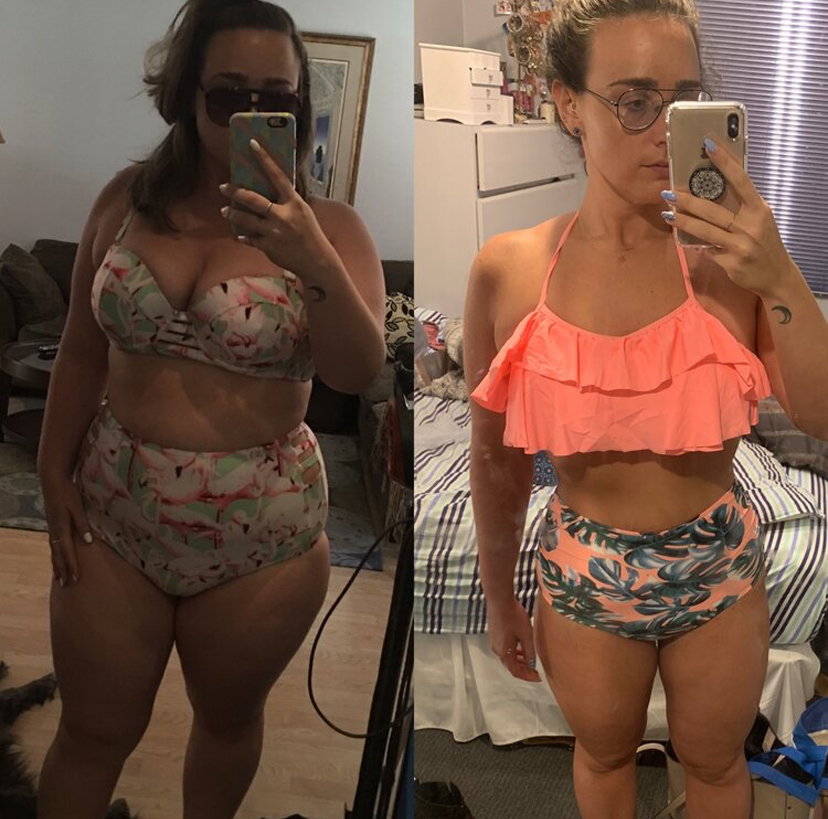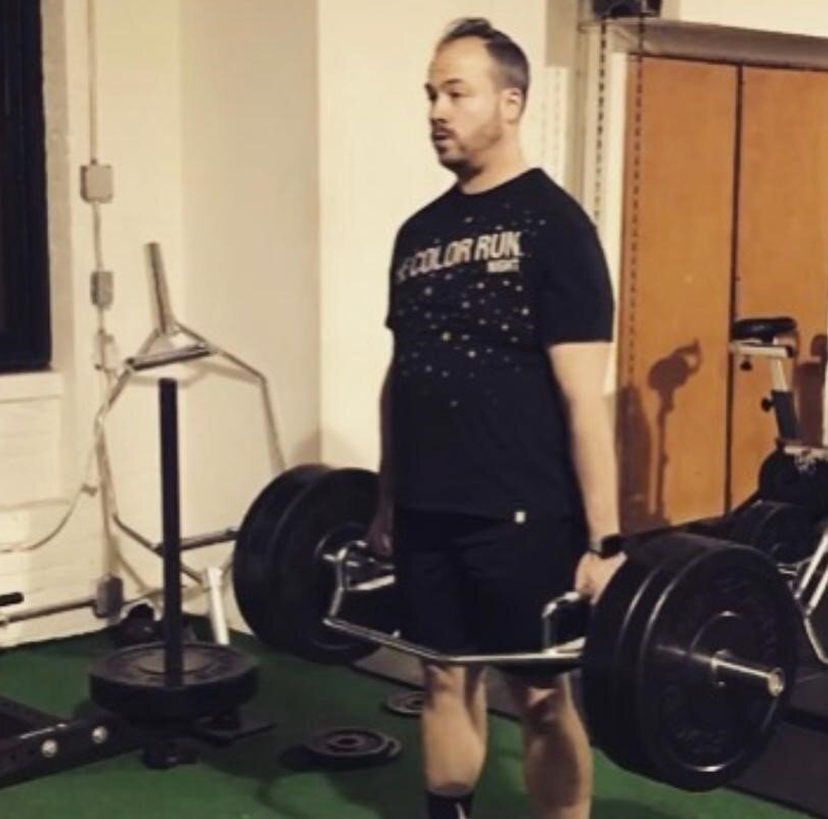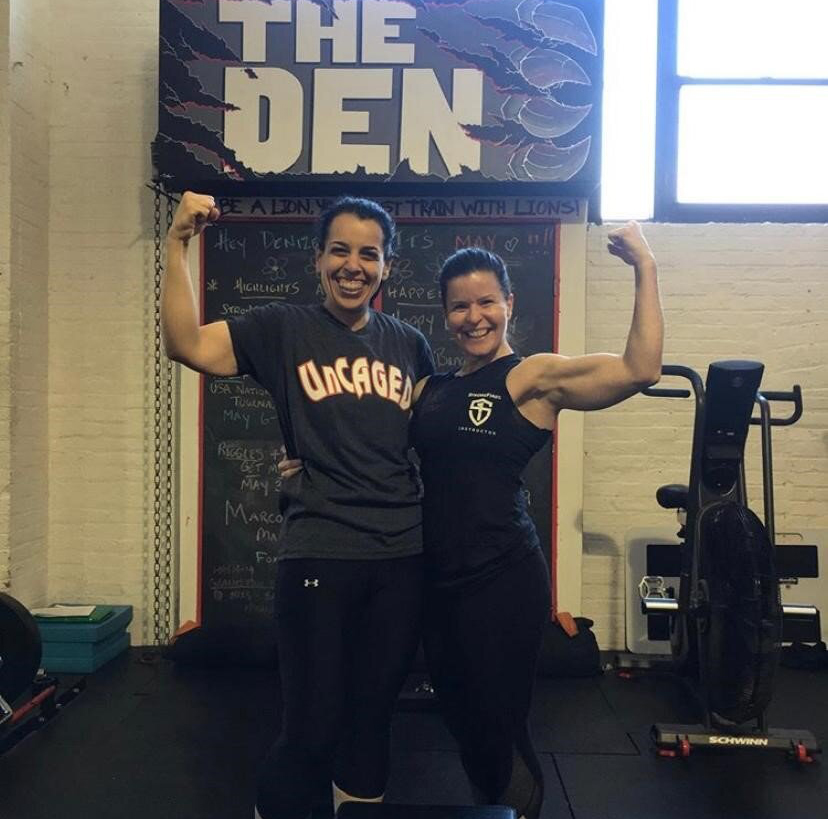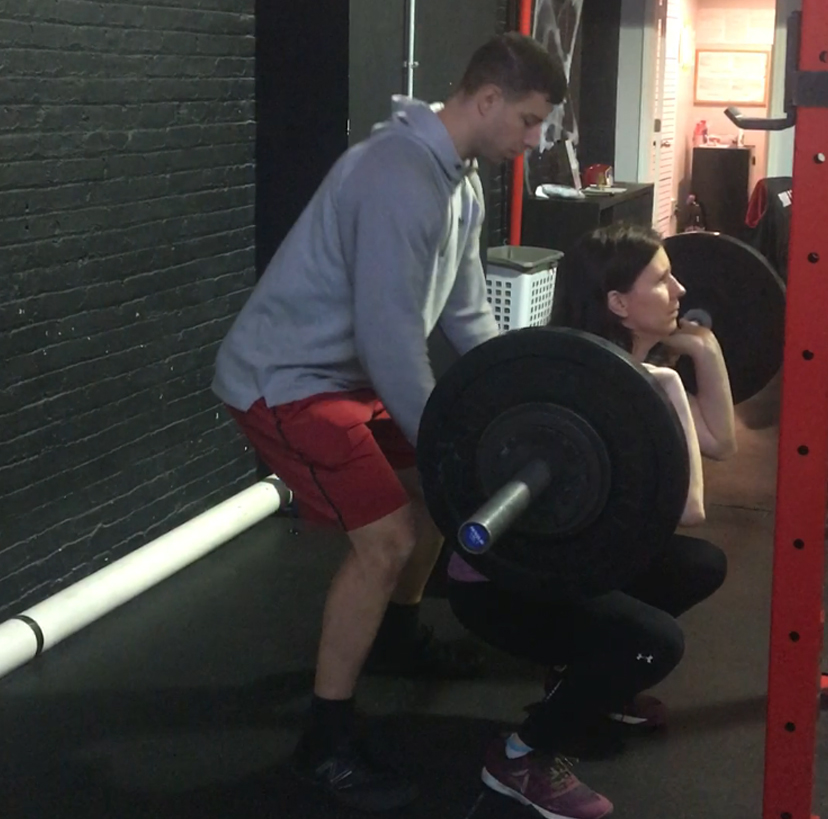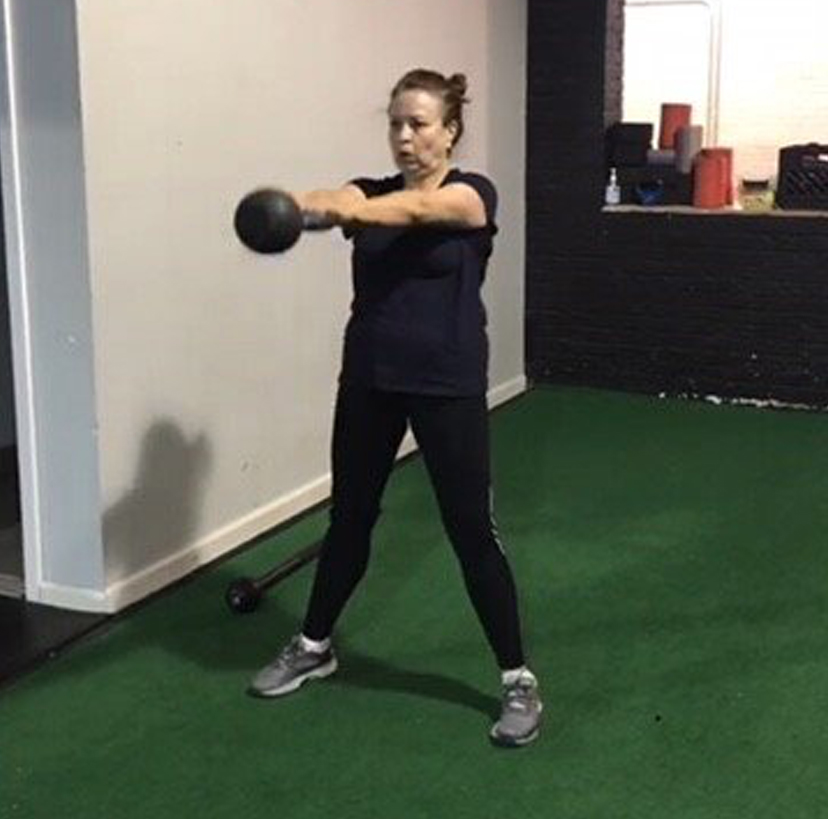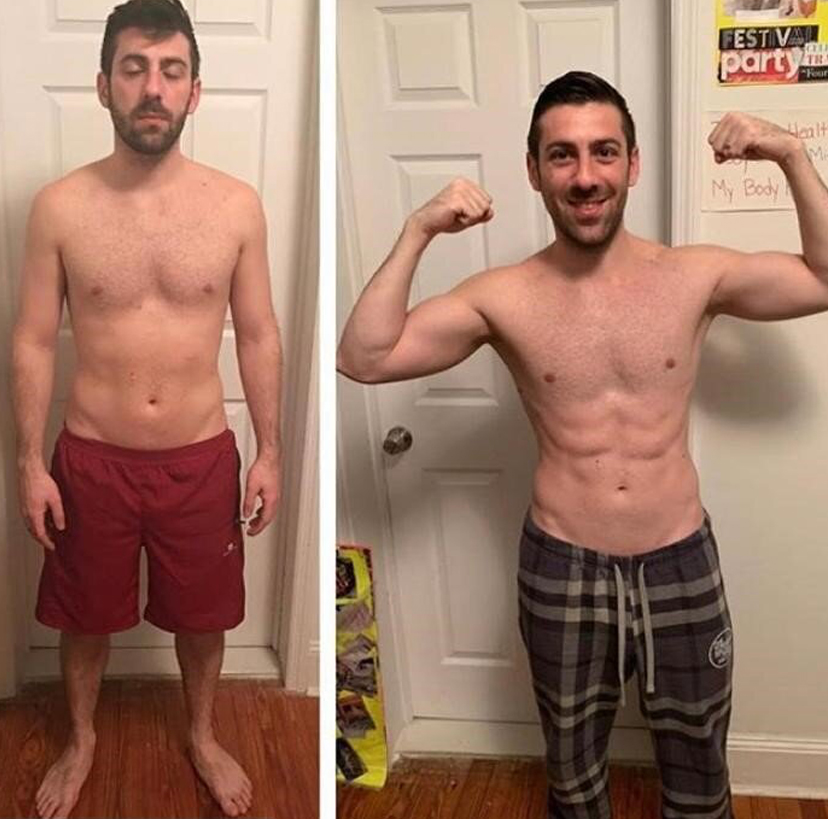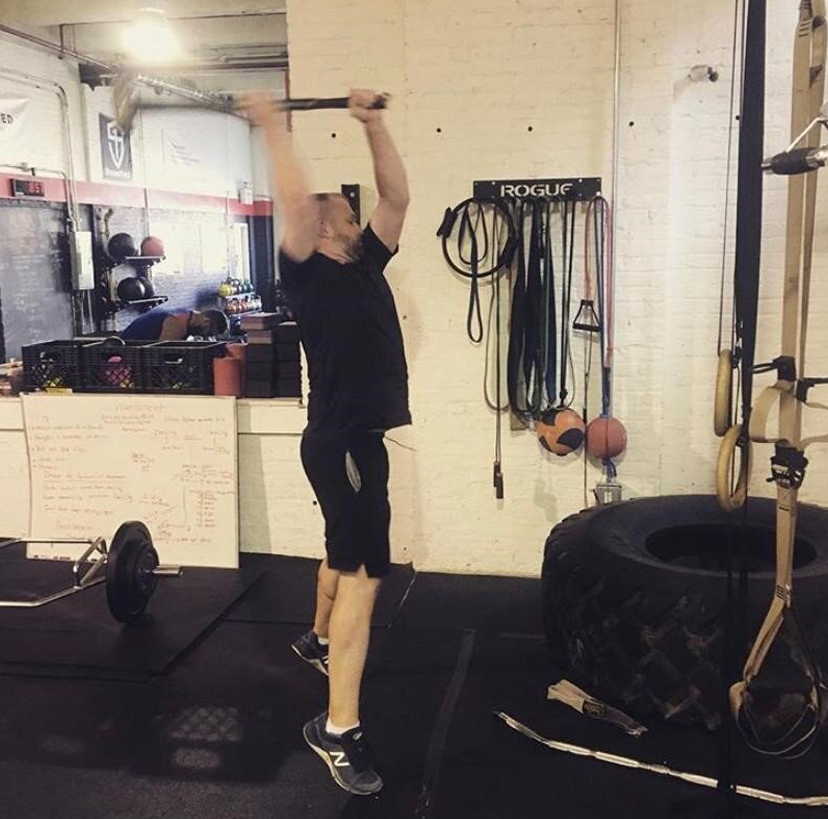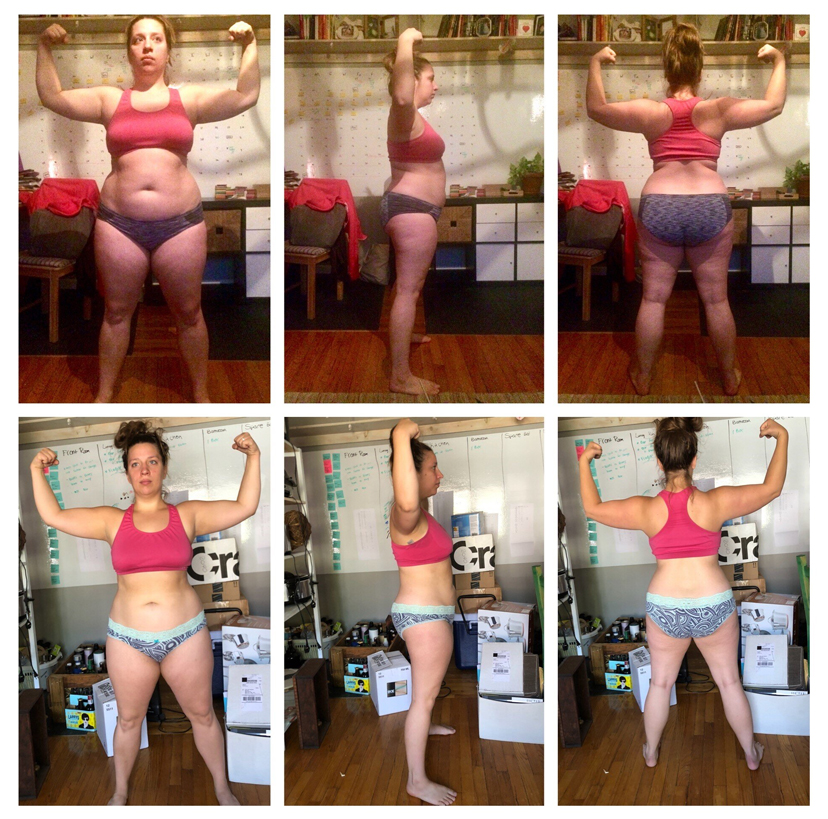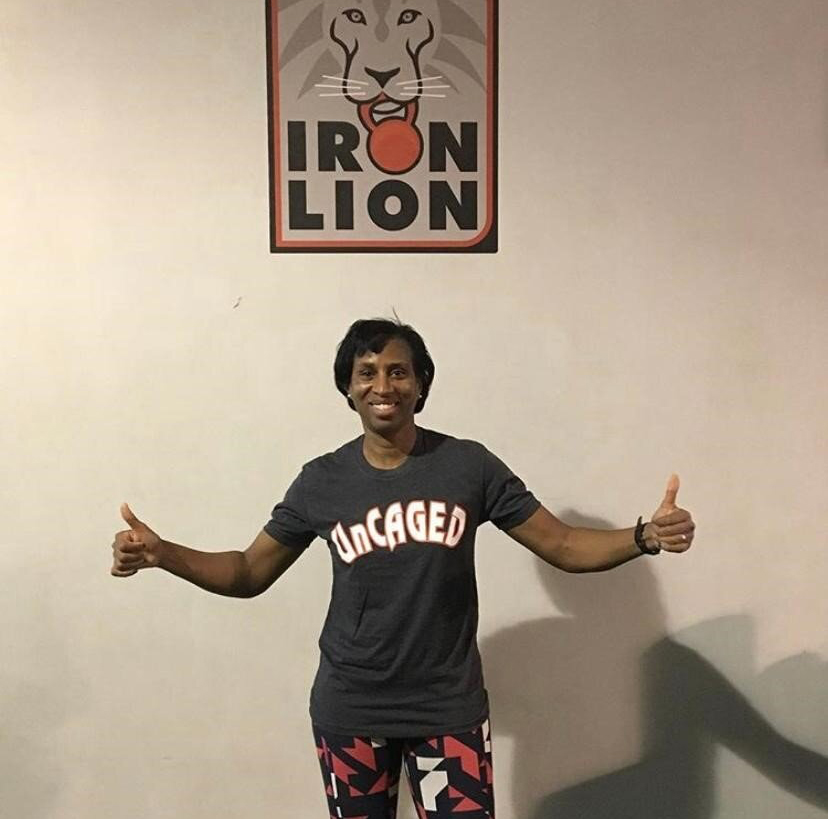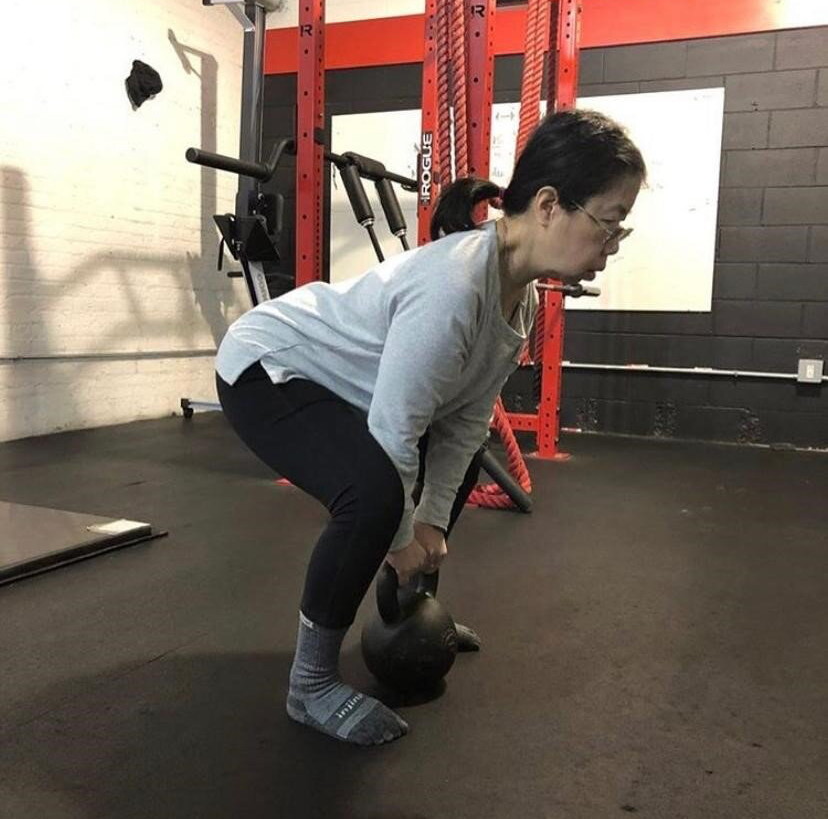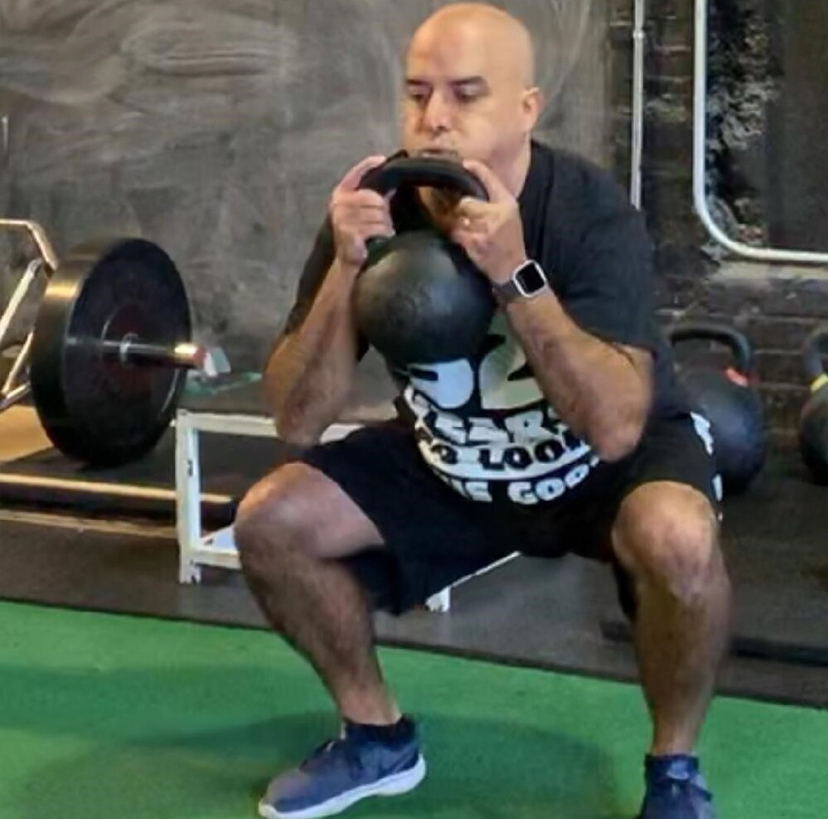Karin Venegas
“Pregnancy and childbirth taught me that women’s bodies are magic. Iron Lion is teaching me that they can be strong and resilient, too.
I joined ILP looking to regain my fitness [after] battling pain from various injuries. It was debilitating and I was desperate to become a normal, active person again. I realized by transformation was about showing up. Years of pain with unpredictable triggers had left me a very nervous person, but despite my reluctance, I kept showing up. I’m really proud of that and I think the coaches are too. They’ve helped me face my fears and with each new program, I grow more confident.”
UnCAGED PRESENTS…
Portion Sizes Explained
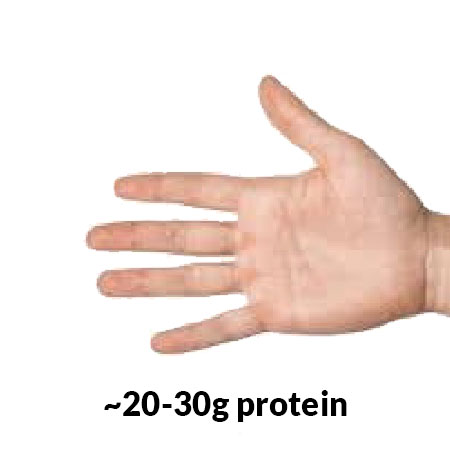
A palm = 3 oz.
Use this to measure protein
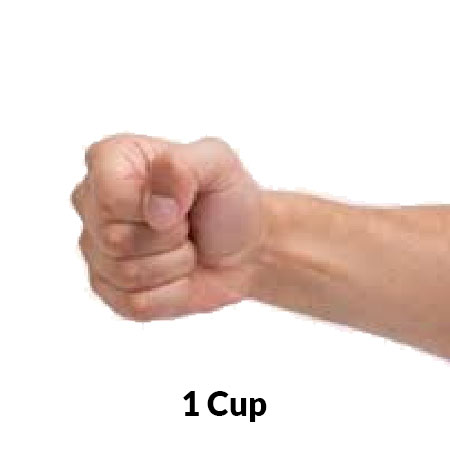
A fist = 1 Cup.
Use this to measure fruits and veggies
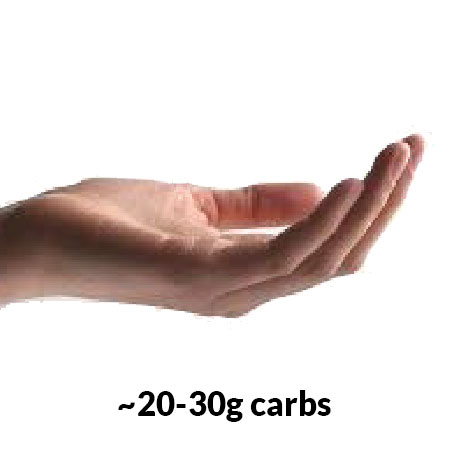
A cupped hand = 1/2 Cup.
Use this to measure starchy carbs or snacks, like nuts.
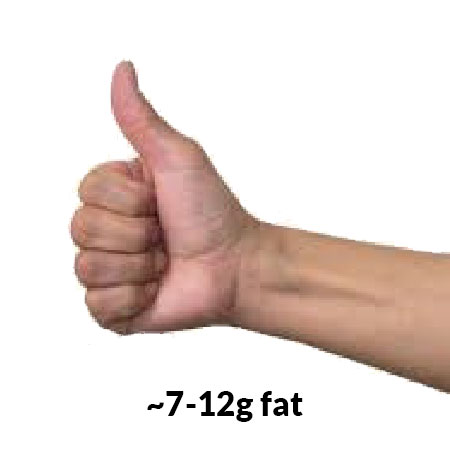
A thumb = 2 Tbsp.
Use this to measure fats like peanut butter or olive oil
HOW MUCH????
Ladies, those who want to lose weight and those of smaller stature: one of each per meal
Gentlemen, those who want to gain weight and those of larger stature: two of each per meal
– Ladies consuming 3-4 meals per day as described above will get 1200-1500 kcal per day
– Gentlemen consuming 3-4 meals per day as described above will get 1500-2100 kcal per day
Need Less Food?
– Feeling overfull at meals
– Not very active
– Eat more frequently during the day
– Trying to lose weight?
– Aren’t achieving weight loss
– Are smaller in stature
REMOVE
MEN: 1 cupped hand carb &/or 1 thumb fat per day
WOMEN: 1 cupped hand carb &/ or 1/2 thumb fat per day
Need More Food?
– Feeling unsatisfied at meals
– Are very active
– Eat less frequently during the day
– Trying to gain muscle?
– Aren’t achieving muscle gain
– Are larger in stature
ADD
MEN: 1 cupped hand carb &/or 1 thumb fat per day
WOMEN: 1 cupped hand carb &/ or 1/2 thumb fat per day
Macronutrients
WHAT IS A MACRONUTRIENT????
Macronutrients or ‘macros’, for short, are types of food that are required in large amounts in the diet. There are three types of macronutrient that are commonly recognized: fat, protein and carbohydrate.
Fat
Fat may seem like the ultimate bad guy of the macro world, but it definitely has its place. It is
important for maintaining strong, healthy cell structure; protecting our major organs and serving as chemical messengers within the body. In addition, fat serves as the body’s source of stored energy in times when food is scarce.
Fat is the most calorie dense of the three macronutrients at 9kcal/g, so fat consumption should be approached with caution and accountability.
Healthy sources of fat include: Nuts, avocado, deep sea fish, flax seeds, & olive oil
Carbohydrate
Carbohydrates have gotten a bad rap in recent years, but biologically they are the body’s favorite fuel source. When carbs are digested they pass into our blood stream as glucose, a type of simple sugar. From there they are deposited all over the body, stored as various intermediate molecules. Carbs in some form are absolutely necessary for normal physical function, but this number varies from person to person.
Carbs are less calorie dense than fat and provide 4kcal/g.
Healthy sources of carbs include whole grains, fruits, vegetables, and legumes.
Protein
Protein is the main building block of muscles. Protein is also plays a huge part in both cell to cell and system-wide communication, as it is a necessary building block for all enzymes within the body. Getting enough protein is especially important if you are extremely active or if muscle gain is one of your goals. Without protein to serve as a raw building block for muscle mass, gains may be slowed and strength progression affected.
Protein has the same calorie density as carbs and provides 4kcal/g.
Healthy sources of protein include: legumes, lean meats & fish, eggs, & seeds
Water, Salt, Inflammation & Hormones
A WORD ABOUT WATER…
Water is not considered a macronutrient, but it is still needed in large quantities in order for our bodies to function as they should. Water is sort of a chemical “Jack-of-all-trades” and is essential whether your goal is weight loss or muscle gain. Drinking enough water can decrease feelings of hunger as well as help keep you feeling satisfied for longer after a meal or snack. Water also serves to flush waste products out of muscles and can lessen soreness after a hard workout.
Salt
Salt is like a magnet for water. Where it goes, water follows. Where your body is concerned, this is especially true. Consuming foods that are high in salt such as cured or deli meats, canned soups, pre-made salad dressing or processed carbs such as crackers or chips can cause your body to pull in water. This can lead to water weight gain and bloating. Stay away from salt!
Inflammation
Inflammation can occur for a number of reasons. Stress, exposure to allergens, physical damage to cells or even lack of sleep can cause areas of the body to become inflamed. As a natural part of the inflammatory response, fluid may build up in the inflamed area. If you have been overly stressed, short on sleep and water or have come into contact with something that you may be sensitive or even allergic to, your body may react by triggering inflammation- resulting in fluid retention and what may look like a weight gain. Keep in mind that these shifts are natural and usually resolve once the inflammation does.
Hormones
Hormone shifts can also cause weight to shift due to fluid retention. This is most commonly seen in women, as estrogen is the main culprit, but may also be seen in obese men, as fat secretes a chemical called aromatase that is responsible in the formation of estrogen. Again, as in most things fluid-related, the weight gain seen with hormone shifts is usually temporary, although may be cyclical in women due to the menstrual cycle.


